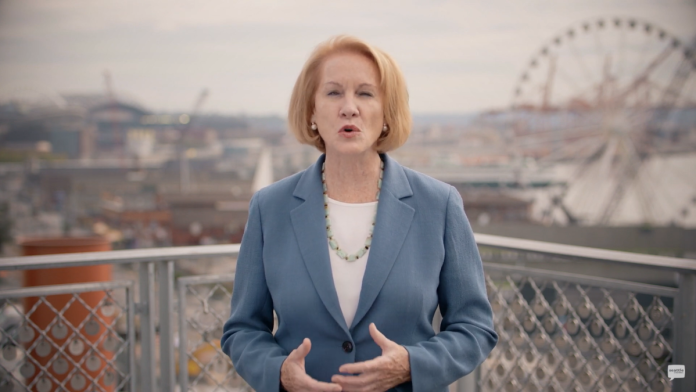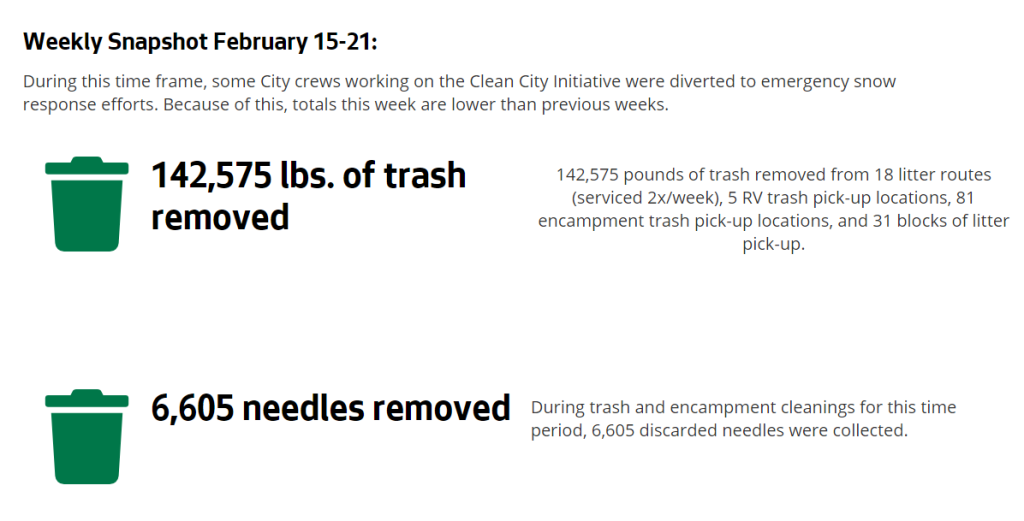
“My constituents are mad. All of Seattle is mad, and to be honest, I’m mad too,” Councilmember Tammy Morales said in a statement Friday. “If the Mayor is worried about risk or logistical hurdles, I say taking a risk or jumping a hurdle is important if it saves even one more life. You must try.”
Morales referred to Mayor Jenny Durkan’s decision to not pursue Federal Emergency Management Agency (FEMA) assistance to house people experiencing homelessness in hotels, which advocates have long urged. A thorough investigation by Publicola‘s Erica C. Barnett revealed the lengths that the Durkan administration was going to avoid this step, which included a seven-point memo from City Budget Director Ben Noble laying out objections–some of them spurious and easily dispelled.
Long memo short, the argument is that Seattle may end up drowning in paperwork and footing most of the bill despite the Biden administration’s promises to cover 100% of hotel costs–boosted from the 75% covered by the Trump administration. Hotels have largely sat empty during the pandemic as travel has declined. A December report put Seattle’s hotel occupancy rate at just 20%. Downtown Seattle alone claims almost 15,000 of King County’s 43,490 hotel rooms, according to Visit Seattle figures. Thus, the city has an empty hotel room for every single one of the 11,751 people experiencing homelessness counted in the most recent count in January 2020.
Councilmember Teresa Mosqueda also expressed frustration in a statement Friday. “I am outraged at the choice to not pursue 100% FEMA reimbursement for our response to the COVID-19 crisis,” Mosqueda said. “This is a public health crisis and the choice not to act at this moment is astounding.”
Don’t shoot the messenger
By Tuesday, Barnett revealed that the Mayor’s staff was attacking the veracity of her reporting in an apparent move to deflect criticism, wiggle out of reopening the policy decision, and evade accountability for Seattle hitting its one-year anniversary of the Covid emergency without more progress in housing our homeless neighbors in safe de-intensified shelters.
“For almost a year, advocates have been begging the city to fund hotel-based shelters in Seattle, focusing on FEMA reimbursement specifically over the last several months,” Barnett said. “Durkan’s office has been reluctant to stand up shelters in hotels, as PubliCola has documented extensively over the past year, although her office agreed last year to use existing COVID Emergency Solutions Grant funding (not FEMA dollars) to stand up two hotels totaling just over 200 rooms, which are supposed to open late next month.”
While attacking the reporting, the Mayor’s spokespeople also claimed they weren’t given the chance to comment and that a decision hadn’t been made yet. That appears untrue. “As for the claim that PubliCola never talked to the budget office or the mayor’s office, in fact, we reached out to the budget office and mayor’s office for this story,” Barnett wrote. “The mayor’s office responded to both inquiries, stepping in on the budget office’s behalf. Elsewhere in her email, Formas wrote that PubliCola’s story was ‘printed without any evidence or sources,’ which is both self-evidently untrue (on-the-record sources are cited and quoted in the story) and suggests that journalists have an obligation to reveal background and off-the-record sources in response to accusations from the mayor’s office.”
Durkan delay is played out
Barnett’s claims match up with the experience of our reporters, who have also watched the Mayor’s office swoop in to manage correspondences and keep a tight lid on the flow of information when seeking comment from a City department. We’ve also witnessed the Mayor kill a project with slow agonizing foot-dragging rather than a swift clear decision, which is why Barnett reported this was a deliberate policy decision rather than just an unmade choice. We’ve seen this before. In addition to Barnett’s example of stalling police budget cuts, there’s also the the 2018 head tax fiasco, 35th Avenue NE bike lane scuttling, and Center City Connector streetcar stalling.
“[Mayor] Durkan’s history and practice do not support the idea that the mayor will have a sudden change of heart and embrace both hotel-based shelters and FEMA funding in the face of her budget director’s advice against it,” Barnett wrote. “Rather than making unambiguous statements that would be unpopular with the public, Durkan’s practice throughout her administration has been to raise strong objections and throw up roadblocks that have the same effect as a formal refusal.”
If you care about Seattle’s homelessness response, this is really earthshaking reporting from Publicola. As we run our spring subscriber drive, also keep in mind our intrepid colleagues at Publicola—Patreon here. (Barnett was our monthly meetup guest in November if you’d like to check out the video.)
Coverage of the FEMA decision is already changing the policy conversation. During the Finance and Housing Committee today, Councilmembers pressed Noble and other City staff to explain their process objections and clear a path forward through them. Their questioning revealed that the Mayor’s office had largely kept Council Central Staff in the dark about their FEMA decisions until last week’s memo. That meant staff couldn’t answer many of their questions, but were following up on them as they are able to complete their reseach.
Councilmembers pointed out that FEMA had shown itself to be a good partner with other cities pursuing a hoteling strategy to ease their homelessness crisis and lower Covid transmission risk.
“The reason we are emphasizing the hoteling strategy is because it has shown such clear success in cities like San Francisco and Los Angeles, cities we know have been dealing with housing crises much like ours since before COVID-19,” Councilmember Mosqueda said in her statement. “To reduce the spread of the virus while we continue to vaccinate residents, we must put people in non-congregate shelter as quickly as possible.”
The excuses given thus far are not being greeted as satisfactory. Beyond Morales and Mosqueda, three Mayoral frontrunners–Councilmember M. Lorena González, Colleen Echohawk, and Andrew Grant Houston–also spoke out against Durkan’s decision. Mosqueda even likened Durkan’s hesitancy to someone turning down the offer of a fire hose when their house is on fire.
“Homelessness is by far the biggest issue that my office responds to on a regular basis,” Morales added in her statement. “Everyone is frustrated at what appears on the outside to be a lack of willingness from our City to react to the plight faced by unhoused people. This is why my staff and I have personally worked with providers like JustCARE, REACH, LEAD and LIHI to engage with, offer services to, and shelter unhoused neighbors in District 2.”
Broader struggles to craft homelessness policy
Mayor Durkan’s struggles with the issue of homelessness have come to define her administration. She ran on building 1,000 tiny homes in her first year and on continuing to sweep people experiencing homelessness and chase them around the city. She kept the latter campaign promise and ditched the former–instead adding only 73 tiny homes in her first year. Even after the Centers for Disease Control and Prevention advised against sweeping encampments during the pandemic to lower Covid transmission risk, the Durkan administration has soldiered on with sweeps.
In fact, the City is planning to sweep Denny Park tomorrow, and the City’s new civilian replacement for the Navigation Team has called in the Seattle Police Department to assist despite the big showdown about removing them from the team. Along with sweeps, Durkan has ceded too much ground to propagandists at conservative outlets like KOMO in defining the homelessness crisis as a result of evil people and drug addiction. Playing into conservative messaging, she’s boasted of how many tons of trash and needles her “Clean Cities Initiative” has removed from encampment areas. Of course, if we heard how many tons of trash City Hall produces per week, it would also sound shocking and messy.
The other big homelessness policy push under Durkan has been to regionalize the response. Unfortunately, King County’s Regional Homelessness Authority has failed to get off the ground and is six months behind schedule in appointing a chief executive officer. The top pick after a lengthy recruiting effort turned down the job last month. With many suburbs increasingly rebelling against the idea of hosting homeless shelters and permanent supportive housing, let alone funding them, just how the regional authority will function and succeed remains much in question.
Ultimately, it will be up to the next mayor to sort out these thorny issues, though by then the FEMA ship may have sailed.
Doug Trumm is publisher of The Urbanist. An Urbanist writer since 2015, he dreams of pedestrian streets, bus lanes, and a mass-timber building spree to end our housing crisis. He graduated from the Evans School of Public Policy and Governance at the University of Washington in 2019. He lives in Seattle's Fremont neighborhood and loves to explore the city by foot and by bike.



